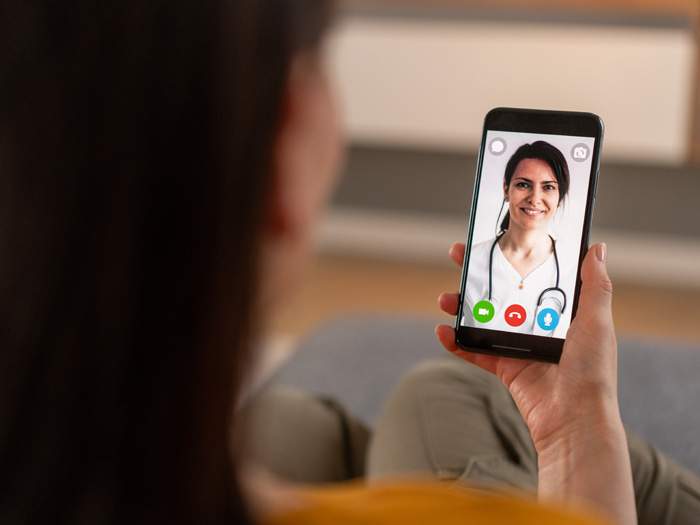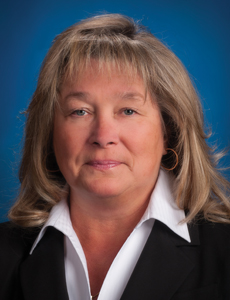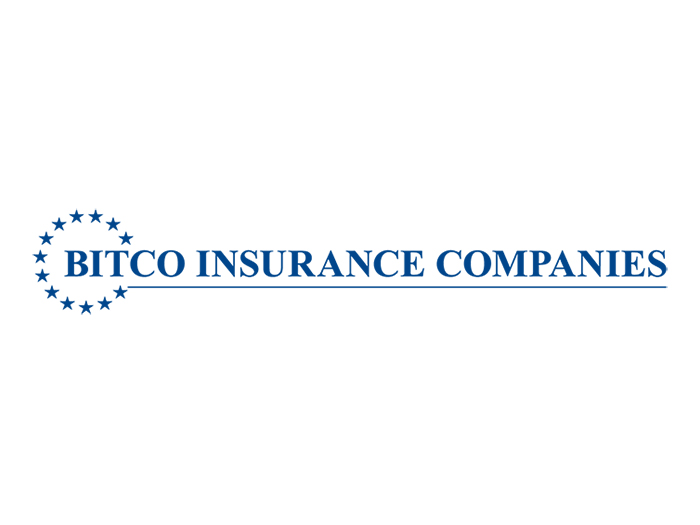Nurse Triage, Telehealth and Why Workers’ Comp Thought Leaders Think This Is a Potent Combination for Worker Recovery

Need a doctor’s appointment? Just open up your laptop.
While that may seem like an odd thing to do in the world of in-person appointments, waiting rooms and taking time off work to go to the doctor, the COVID-19 pandemic has made virtual medical appointments more common than ever. One study found 95% of health centers reported using telehealth during the COVID-19 pandemic.
“There’s been an exponential growth in interest in virtual medicine related to COVID,” said Diane Blaha, senior vice president and chief marketing officer for CorVel Corporation.
In workers’ comp, these types of appointments are especially convenient in cases where a patient may just want a physician’s advice on what to do immediately after an injury.
That’s where virtual nurse triage programs come in.
Through these programs, an injured worker can get on a call or video visit with a triage nurse in the immediate aftermath of an injury.
Using telehealth platforms to provide nurse triage isn’t new in workers’ comp, but the offering is poised to become even more popular in the wake of the telemedicine boom caused by the pandemic.
Now, workers’ comp carriers are beginning to see the same benefits in the programs that self-insured employers have known for years.
During the session “Embracing Nurse Triage and Telehealth in Workers’ Compensation” at the National Workers’ Compensation and Disability Conference (National Comp), Blaha and Dr. Dan Hunt, corporate medical director, AF Group, will discuss how nurse triage and telehealth programs can benefit workers’ compensation programs.
Nurse Triage Provides Medical Guidance on the Spot
One of the advantages of nurse triage programs is that they help get claims started off on the right track by providing injured workers with early medical guidance.

Diane Blaha, senior vice president and chief marketing officer, CorVel Corporation
Before nurse triage services, if a worker was injured while at work, they would have to decide whether or not they needed to leave to seek immediate treatment from an emergency room or an urgent care facility.
Since they don’t have medical training, workers could make the wrong call when it comes to deciding what to do about an injury. If a worker falls and hits their head, for example, they may decide to continue working, because they feel fine even though they may have a concussion.
Working with a nurse triage service helps provide workers with a trusted medical professional they can consult in the event of an injury.
“[Employers] like the fact that their supervisor doesn’t have to make a clinical decision,” Hunt said. “This is a nurse who’s probably got an emergency room background, who’s trained in how to triage.”
During triage, nurses can calm the worker and determine what the best immediate course of treatment is for that particular injury.
In some cases, they may advise a worker to see an occupational health doctor. In the event of a serious injury, they might tell the worker to go to the emergency room. They can even advise workers with minor injury on basic first-aid and return them to their jobs in the same day.
Whatever the advice, working with a nurse triage service can help get injured workers the treatment they need from the beginning of a claim.
“We give them access to care, as quickly as possible,” Blaha said.
“Let’s get [the injured worker] back to work, back to their pre-injury health status, as quickly as possible and make sure that we do so in a way that makes them feel valued and really does represent how important they are to the employer.”
Good for Workers, Good for Claims
Though self-insured employers have embraced virtual nurse triage within their workers’ comp programs for a while now, carriers have lagged behind in adopting the practice.
During their National Comp session, Blaha and Hunt will discuss how his company, AF Group, a larger workers’ compensation carrier, adopted a nurse triage program after getting requests from policyholders.
“What they found is that they were getting pressure from the market,” Blaha said.
In addition to improving injured worker care, using telehealth technologies to operate a nurse triage program can benefit carriers by documenting what happened in the early stages of a claim.
If an injured worker calls a nurse triage line, there will be records of their conversation and what actions they were advised to take — all information that can be valuable during an investigation into whether or not a claim is compensable.
“Now it’s information they have at their fingertips,” Blaha said. “They can then make quicker compensability decisions, and do a much better job taking care of that injured worker.”
Coupled together, better, more immediate care for injured workers and a record of information that can inform compensability decisions can help reduce total cost of risk for workers’ comp, according to Blaha.
“It has the ability to reduce the total cost of risk by double digits,” she said. &
 National Comp — the National Workers’ Compensation and Disability Conference — is back! We’re planning an in-person show for October 20-22, 2021 and we’re excited to see everyone while still adhering to all safety protocols set forth by local and national health authorities at the time of the event. Register today!
National Comp — the National Workers’ Compensation and Disability Conference — is back! We’re planning an in-person show for October 20-22, 2021 and we’re excited to see everyone while still adhering to all safety protocols set forth by local and national health authorities at the time of the event. Register today!
This year, we’ll feature seven tracks — from core content on medical and pharmaceutical management, claims and return-to-work, plus new and expanded avenues to explore like risk finance and injury prevention. All of our educational sessions are chosen for their ability to deliver sound takeaways and ideas that attendees can use right now.
In the meantime, National Comp will continue bringing you free virtual, educational content through our digital sessions series and our CompTalks program. Register today to make sure you don’t miss a digital session and check out our on-demand CompTalks library. Missed a session? Watch it here on-demand.










